We hope this directory will allow you to stay connected with other researchers after the BE-Well networking event and serves as a starting point for new conversations and collaborations via virtual meet-ups. Browse, or search this site for keywords.

Alister Baird
PhD Candidate
Division of Psychiatry
I am a PhD candidate in UCLs Division of Psychiatry. My interdisciplinary project explores how physical environmental exposures (for example; nature exposure, air and noise pollution, urban design) influence aggressive behaviors in both neuro typical and neurodiverse child populations. We have recently constructed an artificial simulated urban greenspace environment to explore how urban natural spaces may influence the physiological arousal of children with neurodevelopmental disorders. My research interests predominately involve how we can elucidate the therapeutic and harmful influences of physical environmental exposures on child populations. Whilst I am broadly concerned with well-being (both physical and mental health) I have specific interests in how child environments can be designed to improve cognitive and behavioral outcomes. I am also passionate on developing our understanding of underlying neurophysiological mechanisms behind these influences.
Keywords: physical environment, neurodevelopmental disorders, aggressive behaviors, nature, urban greenspace(s)
Email: alister.baird.19@ucl.ac.uk
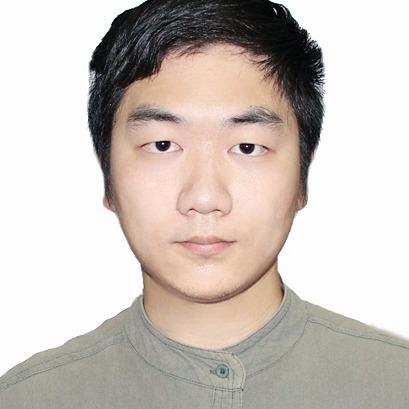
Jian Chen
PhD Candidate
Department of Geography
My name is Jian Chen and my research area is marine protected areas and coevolutionary governance. Recently, I have been studying and researching how to analyze the policy and economic directions of coastal communities through scenario theory. I am very interested in the built environment because it plays an important role in improving the spatial planning of coastal communities. I love the ocean and look forward to getting to know you.
Keywords: Marine protected areas, Path dependancy, Governance, China, Marine Spatial Planning, institutional diversity
Email: ucfaheq@ucl.ac.uk
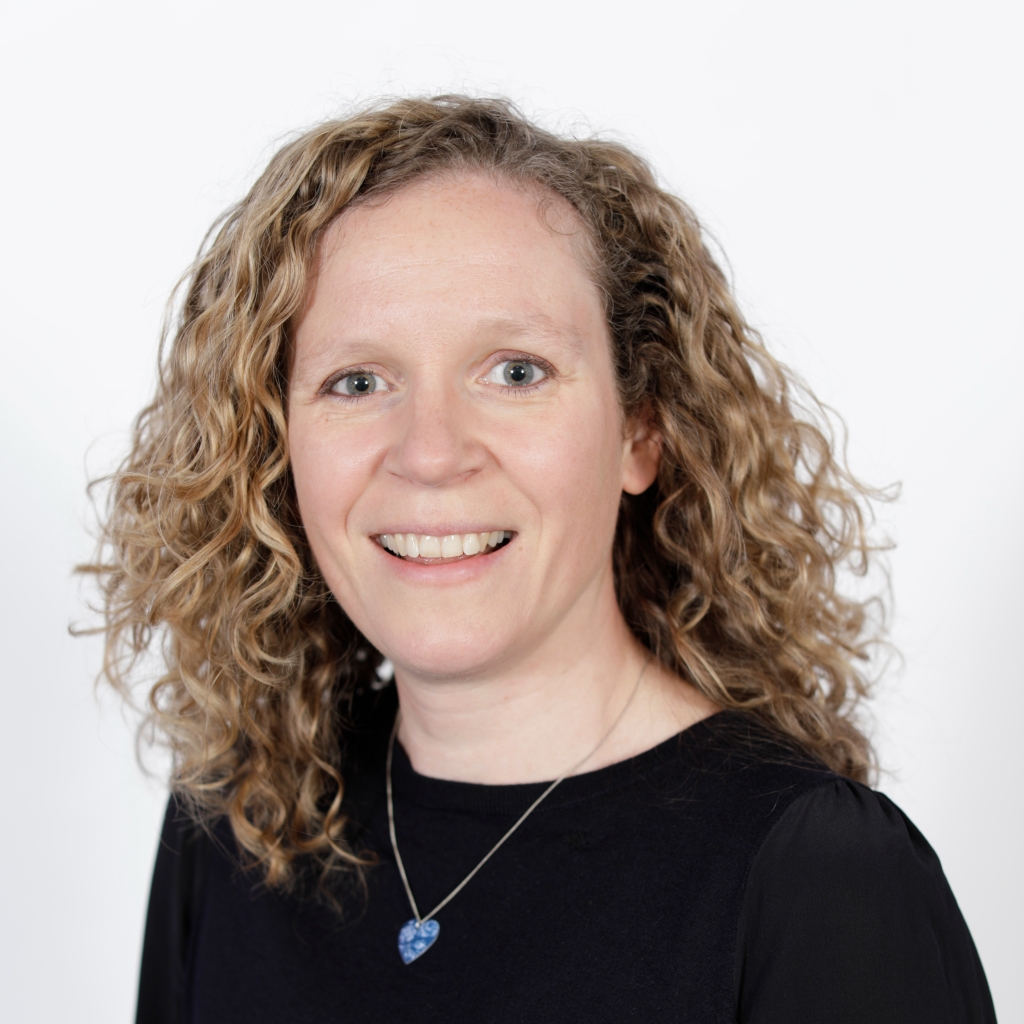
Joanna Dawes
Lecturer (soon NIHR Doctoral Research Fellow)
Department of Epidemiology and Public Health
Jo Dawes is currently seconded to the team developing a new online Master of Public Health at UCL. She has secured an NIHR Doctoral Research Fellowship based in the Collaborative Centre for Inclusion Health, within the Institute of Epidemiology and Health Care, and is due to start this June 2022. She is working on several research projects, including exploring the prevalence of frailty in people experiencing homelessness, physical activity interventions for excluded groups and the impact of the COVID pandemic on mental health. She co-leads the Homeless and Inclusion Health module at UCL. She is a qualified physiotherapist, who has worked in various NHS settings, including eight years within a specialist health and social care team for people experiencing homelessness in Glasgow. Jo contributes to the work of Crisis, having developed a physiotherapy service, which runs alongside other health services during the Christmas week. Prior to joining UCL, Jo was a Senior Lecturer in Physiotherapy at St George’s, University of London. As well as her research and clinical interested in homelessness and health, she is passionate about physical activity for health gain, active travel and strategies to facilitate physical activity in daily life for all members of society.
My research interests are primarily focused on the health of people experiencing homelessness/ severe multiple disadvantage. In my research to date, I have focused on their facilitators and barriers to accessing healthcare services, particularly physiotherapy, and the evidence-base for physical activity interventions for this population. Having recently secured an NIHR Doctoral Research fellowship, I will be using a mixed methods approach to focus on measuring the prevalence of frailty in people experiencing homelessness and exploring how existing evidence-based strategies for managing frailty in the general population could be appropriately adapted to manage frailty in people experiencing homelessness. I am also interested in physical activity and active travel. In particular, what strategies can be adopted to ensure being active is a realistic and enjoyable option for all members of society.
Keywords: homelessness, health and wellbeing, frailty, physical activity, inclusion, active travel
Email: joanna.dawes@ucl.ac.uk
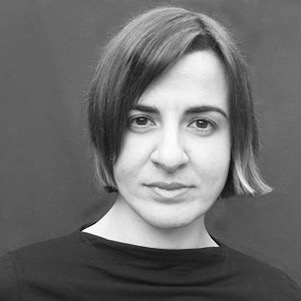
Prof Eirini Flouri
Professor of Developmental Psychology
UCL Department of Psychology & Human Development
Eirini Flouri is a Professor in Developmental Psychology at the Department of Psychology and Human Development at the UCL Institute of Education. She received her PhD in psychology in 2000 from the University of Exeter, was a postdoctoral research fellow at Oxford from 2000 to 2004 and joined the UCL Institute of Education as a senior lecturer in 2005. She was promoted to reader in 2008 and to professor in 2010. Eirini is interested in understanding the causes of children’s emotional and behavioural problems. Complementing her previous work on the role of family (parenting, parental mental illness, and poverty) and the broader context (neighbourhood and school), her current research starts to explore the role of biological factors, such as inflammation, in the development of emotional and behavioural problems in childhood.
Email: e.flouri@ucl.ac.uk

Yasmin Garcia-Sterling
PhD Candidate
The Bartlett School of Sustainable Construction
I’m a Ph.D. student industry-based with Capital Hospitals London where I explore the impacts from existing Wayfinding systems at two hospitals in Barts Health NHS Trust. My research investigates the ways in which people source information to shape their spatial behaviour and how we can improve our sensory health in Wayfinding with digital Innovative methods and methodologies.
My project interests are with understanding a diversified set of user needs across sensory, physical and mental differences, which can applied to contemporary wayfinding gaps. Understanding the benefits from a humanistic perspective, including user physiological wellbeing and neurology, means we can shift modern space-generative wayfinding design and planning into a user aware system.
The overarching objective for my research is to review, combine and propose models to process for a User-based Digital Wayfinding Strategy. Making reflections to embed the Person-centric Care Framework, in NHS England healthcare infrastructure and modelled by the two hospitals I am currently with. My following endeavour is to enforce policy updates to the most recent UK guidance for Hospital Wayfinding from 2005 to include digital practices and applying such models for sensing space.
Keywords: sensory modalities, hospital wayfinding, inclusion, technological innovation

Dr Sarah Jasim
CAPE Policy Fellow
Department of Applied Health Research
Sarah is a CAPE (Capabilities in Academic Policy Engagement) Fellow at the Greater London Authority, working within the City Intelligence Unit. Her role is to mobilise academic knowledge in London, and beyond. Sarah is also a Senior Research Fellow at the Department of Applied Health Research (UCL) and the Care Policy and Evaluation Centre (LSE). Through her role she supports CPEC’s partnership in the NIHR Applied Research Collaboration North Thames, and is a member of the ARC-NT’s Research Partnership Team.
Keywords: evaluation, health services, social care
Email: sarah.jasim@ucl.ac.uk

Iris Ji
PhD Candidate
Psychology and Human Development
Iris is a PhD candidate in Psychology and Human Development at the University College London. She has a background in physical geography (BSc) and psychology (MSc). Her current research focuses on understanding how biological, social, and environmental factors affect young people’s mental well-being. She is particularly interested in stress-related physiological systems, such as the HPA axis and the immune system. She is also passionate about developing nature-based interventions in improving individuals’ physical and mental health.
Keywords: mental health; cortisol; inflammation; greenspace
Email: dongying.ji@ucl.ac.uk

Dima Khazem
Lecturer
Department of Curriculum, Pedagogy and Assessment
I am a lecturer and module leader within the Department of Curriculum, Pedagogy and Assessment at the Institute of Education working on the BA Education, MA Education and MA Global Learning programmes. I have a BSc in Biology, a Diploma in Science Education, and an MA in Health Promotion in Education and International Development; and my PhD thesis is on climate change and its health impacts in the school curriculum. I have taught Biology, Science and Health and Social Care in London secondary schools for 16 years, worked as a news broadcast journalist then returned to teaching briefly before starting work at IOE since 2015. I have an ecological, environmental and aesthetic interest in the built environment both within and outside the education sector, and how it can be adapted and employed to mitigate the impacts of climate change, including those related to human health. I am interested in climate change education, within and outside schools, the impact of climate change on health and the way climate change can affect health determinants or contribute to conflict.
Keywords: climate change, health, schools, curriculum, adaptation, mitigation
Email: d.khazem@ucl.ac.uk

Dr Kimon Krenz
Research Associate
The Bartlett School of Architecture
Kimon is a Research Associate at the Bartlett School of Architecture and a member of the Space Syntax Laboratory, at the University College London (UCL), United Kingdom, where he also obtained a PhD in Urban Space and Computation. In addition to his academic work, Kimon has worked as an architect, urban planner and consultant for medium to large-scale urban development projects in Germany, which have been awarded several architecture prizes. In his research, Kimon uses computational methods to quantify and analyse the built environment to study how space shapes human behaviour. He is interested in how we can use spatial data science methods to uncover social, economic and spatial inequalities and how this knowledge can inform evidence-based urban planning and policy-making. More recently, Kimon’s work is focused on the development of individual-level environmental indicators for the Connected Bradford programme–an anonymised database linking primary care, secondary care, community care and social care information for over 700,000 residents in Bradford. Kimon is utilising this data to shed light on the complex relationships between environmental factors and health and well-being outcomes, such as the role the food environment plays in childhood obesity.
Keywords: spatial data science, urban planning, urban morphology, human behaviour, space syntax
Email: k.krenz@ucl.ac.uk

Daryia Krivosheina
MSc Candidate
Bartlett School of Sustainable Construction
Daryia Krivosheina is a medical doctor and researcher currently pursuing an MSc in Healthcare Facilities at UCL. She is an awardee of the Chevening Scholarship, which allows emerging leaders to study in the UK. Her clinical background includes practice in different hospital departments and outpatient clinics. Among others, she is well-acquainted with operating theatres, having spent three years periodically volunteering as a surgical care practitioner in ophthalmology, paediatrics, traumatology and general surgery. This experience allows her to better understand the needs of hospital users and drive research in a more practical direction. As a researcher, she worked on four projects in biomedicine (machine learning image analysis), clinical research (clinical trial – phase IV, observational study) and public health research. She presented her studies at international medical conferences, e.g., in Poland, Germany, Ireland, and received awards for best oral presentation. She has experience working abroad, having been an intern in a German clinic and a visiting researcher (EDUFI Fellowship) at the University of Eastern Finland. Currently, for her dissertation thesis, Daryia aims to explore how integrated arts in hospital spaces could provide equal health benefits for all users, with a focus on people with sensory disabilities.
Daryia is interested in exploring how healthcare facilities can contribute to increasing patient outcomes, staff efficiency and well-being. Her particulate interest is in adapting spaces for a diverse population: elderly, disabled, mentally impaired, cultural aspects, etc. Daryia is enthusiastic about researching creative solutions in healthcare settings, such as arts, recreation rooms, green areas, and other non-clinical interventions. After her graduation, she aims to pursue a PhD and further develop her dissertation topic on inclusive arts in hospitals. She is keen to collaborate with professionals on topics involving health and the environment.
Keywords: Hospital environment, Arts in health, Health and wellbeing, Inclusion

Prof Eleni Nastouli
Professor of Virology
Infection, Immunity, Inflammation, Institute of Child Health
I am a paediatrician and virologist, Professor of Virology at UCL, Director of the UCLH Advanced Pathogen Diagnostics Unit introducing novel diagnostics to clinical practice, investigating transmission of viruses like influenza in the hospital setting using viral whole genome sequencing. I am the PI of SAFER, a comprehensive healthcare worker study funded by the MRC-UKRI where we are studying risk of SARS-CoV-2 infection risk. We utilise digital data to assess movement and inform simulation models and a spatial analysis. I have received research funding by the NIHR, MRC, Amfar and H2020.
My research involves study of transmission of viruses in the hospital setting and how we can utilise whole genome sequencing to inform clinical decisions about treatment, infection control and to predict severity. Linking the virology data with clinical data as well as spatial movement data is required to achieve this and is an active area of my research.
Keywords: virology, infection, whole genome sequencing
Email: e.nastouli@ucl.ac.uk

Shirah Mansaray
PhD Candidate
STEAPP
Shirah Mansaray is a PhD scholar at University College London conducting academic and industry research on healthcare policies and architectures that promote mental health through patient-centric designs, design responsibility and sustainable environmental design. To advance policy cohesion and development in the impact economy, Shirah produced an interactive and intuitive ecosystem map of policies and stakeholders in the impact economy landscape, predominantly focusing on the UK and EU. Shirah is committed to writing and speaking about the opportunities and challenges presented by the rise of businesses focused on health architecture, social purpose, ethical practices and responsible building design practices. Shirah is also the CEO and founding trustee of an international charity that provides mental health support to former child victims of war in Uganda. Shirah has over 15 years’ experience working in the humanitarian field, with organisations ranging from United Nations and the Human Rights and Economic Affairs Department at the Council of Europe, Strasbourg. This experience sparked her interest in pursuing a career as a human rights lawyer and advocate. Shirah is a longstanding supporter of Amnesty International and is a currently a board member and trustee of the organisation.
A PhD study investigating the status of mental health service provision in the UK and Uganda, with a special focus on the feasibility and utility of healthcare policies and architectures that promote mental health through patient-centric designs and design inclusivity, and through sustainable and thoughtful environmental design embedding regenerative and adaptive reuse/preservation strategies. The research is advancing this notion as a sustainable, responsible and inclusive innovation for mental health (SRII4MH) approach. The main research question for the thesis is “How has the interaction between the built environment, space and mental health policy influenced mental health service delivery in the United Kingdom and Uganda?”. Using two case studies of UK mental health inpatient settings, the study explores this research question underpinned by Lefebvre’s conceptual and theoretical framework of Lived Space, Conceived Space, and Perceived Space, and a combination of literature reviews and questionnaire-led interviews.
Keywords: mental health, architecture, innovation, policy, engineering, sustainability
Email: shirah.mansaray@icloud.com

Dr Lusi Morhayim
Marie Skłodowska-Curie Research Fellow
UCL Bartlett School of Sustainable Construction
As an architectural and urban researcher, Lusi’s work focuses on the intersection of the built environment and users’ social, behavioural and cultural needs. Her academic publications include research on urban sustainability, specifically the right to “sustainable and livable” cities and spatial justice as well as ethnographic and user-centered design methods in architecture and post-occupancy evaluations in multiple building types. Her most recent work examines cancer infusion centres’ influence on the well-being of patients and staff and the operational efficiency of the clinics. She is the co-editor of “Revisiting Social Factors: Advancing Research into People and Place.” Lusi Morhayim earned her PhD in Architecture from The University of California, Berkeley, USA and has taught architectural and social research and theory courses and design studios at the University of California, Berkeley, Technion, Israeli Institute of Technology, Academy of Art University in San Francisco, and at the Yildiz Technical University in Istanbul. Her research is published in peer-reviewed journals including Environment and Behavior, Journal of Architectural and Planning Research, International Journal of Architectural Research, Journal of Urban Design, Antipode, and Spatial Justice.
Email: l.morhayim@ucl.ac.uk

Alison Moody
Research Fellow
Epidemiology and Public Health
I am a survey researcher, mainly working with the Health Survey for England data (a repeated cross-sectional study) and the English Longitudinal Study of Ageing to monitor trends and inequalities in population health. I am interested in how the housing environment may affect health.
Keywords: health, NCD, inequality, housing
Email: a.moody@ucl.ac.uk
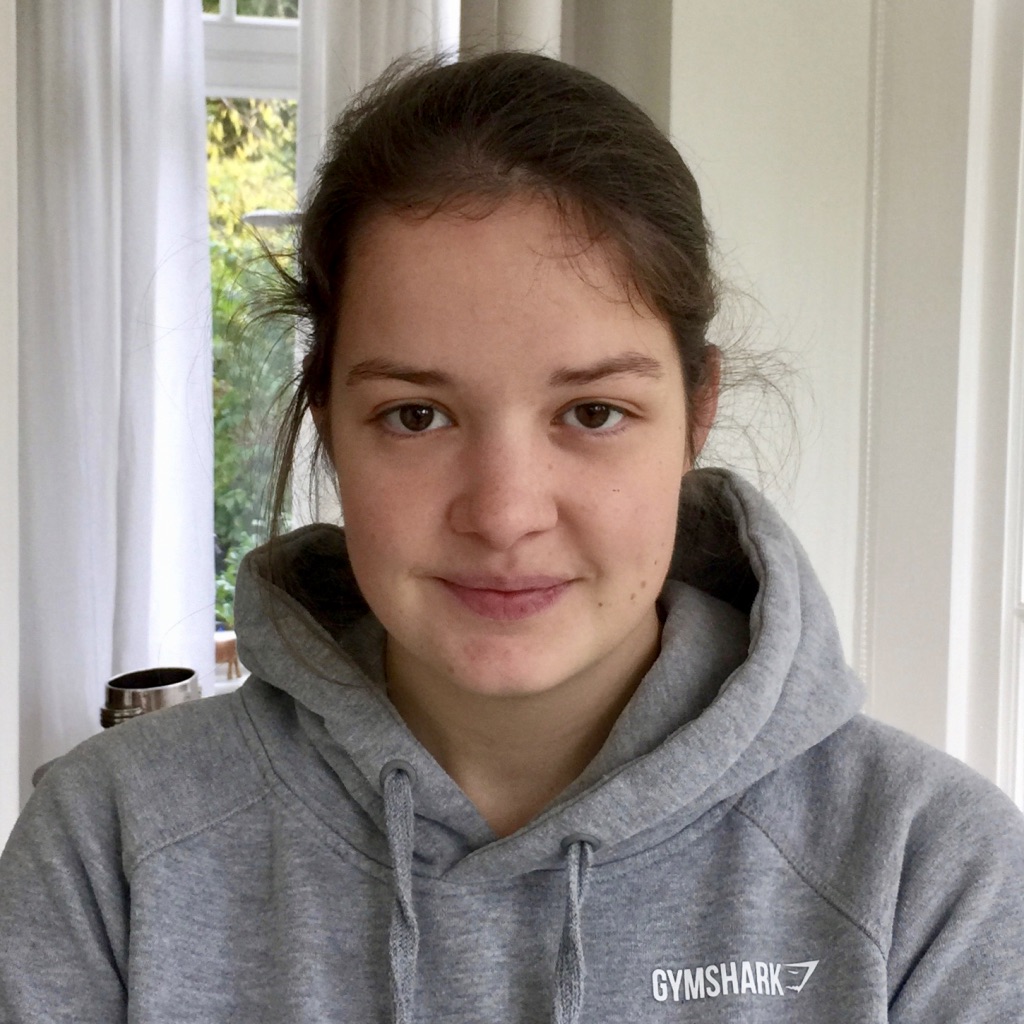
Marie Mueller
PhD Candidate
UCL Department of Psychology & Human Development
Marie Mueller is a Ph.D. student on the Ecological Brain DTP at University College London where she is based at the Department of Psychology and Human Development. Marie has a background in psychology (B.Sc.) and cognitive neuroscience (M.Res.). During her studies, she has worked in research labs in Germany, Switzerland, and the UK. Her research interest is in the relationship between place and health. The focus of her Ph.D. is on the association of greenspace with the mental health and well-being of children and adolescents. In addition to working on her Ph.D., Marie is a health and well-being researcher at The Centric Lab, creating strategies to improve public health and health equity (with a focus on urban planning and design).
Email: marie.mueller.16@ucl.ac.uk
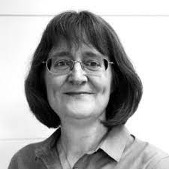
Dr Niamh Murtagh
Senior Research Fellow
The Bartlett School of Sustainable Construction
Niamh Murtagh is a Senior Research Fellow at UCL. Niamh’s first degree was in Computer Science, obtained from University College Dublin. She worked in software in a variety of industries in Ireland and the UK, including electricity, telecommunications, and logistics, and has achieved Chartered Engineer and Chartered Information Technology Practitioner status. Alongside her roles as an IT Project Manager and Systems Architect, she completed an MSc in Software Engineering at the University of Brighton. Having decided on a move to psychology, she completed an MSc in Occupational and Organisational Psychology at the University of Surrey and went on to complete a PhD in social psychology. Her findings from her PhD then led her into research in environmental psychology, particularly on pro-environmental behaviour and behaviour change. She worked for four years as a Research Fellow in the Environmental Psychology Research Centre at the University of Surrey. Her work there explored transport and energy behaviours from the perspective of sustainability, on projects funded by ESRC and EPSRC, co-working with disciplines including communications engineers, sociologists, economists, and political and environmental scientists. She joined UCL at the end of 2013 and has developed collaborations with colleagues across UCL and other UK universities, as well as in the UAE, Finland, and China. Her research interests focus on people and the built environment, particularly relating to sustainable behaviour and making the built environment more resilient to the changing climate. Her latest funded projects include Green Fronts on urban greening, and Almshouse Resilient Communities on social resilience in older living communities.
Email: n.murtagh@ucl.ac.uk
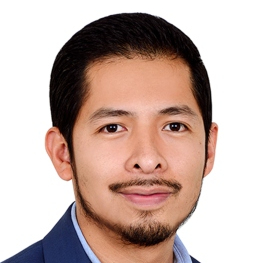
Austreberto (Beto) Lopez Sanchez
MSc Student
The Bartlett School of Sustainable Construction
I am Austreberto Lopez, a Mexican civil engineer highly motivated and enthusiastic about the construction and management of healthcare facilities. My experience in healthcare facilities includes the planning and design of primary and secondary care hospitals in Mexico. Currently, I am studying the MSc in Healthcare Facilities at UCL. As a civil engineer, I am interested in designing structurally safe and architectural harmony hospitals. Also, I am intrigued by finding the balance between the agility and flexibility to provide healthcare for the needy during modern healthcare disruptions, such as natural disasters, pandemics, or climate change emergencies. My goal is to bridge the gap between inequality and injustice in vulnerable communities due to the lack of medical infrastructure.
My research interest is in how to design seismically resilient hospitals with a sustainable perspective. My research aims to compare different building regulations in countries vulnerable to earthquakes, such as Mexico, New Zealand, and the U.S. The study attempts to provide both structurally and architectonic recommendations to improve the healthcare provision to avoid casualties in hospitals during seismic activity, including visitors, patients, and medical staff. Also, the research aims to answer if it is a relationship between climate change and more frequent seismic activity in the last years. The research question about the relationship between climate change, earthquakes and how to design hospitals resilient to seismic activity is more important than ever, as climate emergency is the major threat for the 21st century. Hence, vulnerable countries to earthquakes – mainly developing countries – must find strategies that improve the built environment, and the healthcare provision to face this kind of natural disaster.
Keywords: hospital design, seismically resilient hospital, hospital structural capacity, seismically sustainable hospital

Sara Tofiq
PhD Student
Civil, Environmental and Geomatic Engineering
I’m Sara and I am an environmental researcher looking at the perceptions of green space and its potential link with mental wellbeing in the adolescent population. I am interested in combining both quantitative and qualitative methods to increase our knowledge about adolescent perceptions of green space and how they are used. I am also interested in better understanding the link between perceptions of green space and mental wellbeing in adolescents. This timely area of study could inform the future design of green spaces that could promote adolescent mental wellbeing. My research interests include perceptive green space, quality of green space, adolescent mental wellbeing, environmental and urban design and research informed policy.
Keywords: perceptive green space, adolescent mental wellbeing, environmental and urban design, neighbourhoods
Email: sara.tofiq.14@ucl.ac.uk

Prof Nick Tyler
Professor of Civil Engineering
UCL Centre for Transport Studies
Nick Tyler is the Director of the UCL Centre for Transport Studies and Chadwick Professor of Civil Engineering and investigates the ways in which people interact with their immediate environments. He is the Director of the UCL PEARL facility (Person-Environment-Activity Research Laboratory), the new £50M transdisciplinary UCL research facility in Dagenham. The group works on a wide variety of projects directed towards making the world more sympathetic to people’s needs and creating a sustainable future for both people and planet. Nick’s work is highly transdisciplinary, and his team includes and works with, apart from civil and mechanical engineers, psychologists, architects, musicians, philosophers, neuroscientists, artists, urban designers, planners, economists, ophthalmologists, audiologists, and orthopaedics. He is a co-founder of the UCL Universal Composition Laboratory (UCL2) which undertakes multisensorial spatiotemporal design. Nick is involved in projects in several countries in Latin America, Japan, China, and continental Europe, as well as in London and elsewhere in the UK.
Email: n.tyler@ucl.ac.uk

Prof Nicola Walshe
Professor of Education
UCL Department of Curriculum, Pedagogy and Assessment
Nicola Walshe is Head of Department of Curriculum, Pedagogy and Assessment and Executive Director of the Centre for Climate Change and Sustainability Education at the UCL Institute of Education. Her background is in geography education: she originally gained a PhD in glaciology and taught and worked as Head of Geography in three secondary schools in the UK before going on to teach and eventually lead the Geography PGCE course at Cambridge University for ten years. She then moved to Anglia Ruskin University where, ultimately as Head of the School of Education and Social Care, she had overarching responsibility for the leadership of education, research and knowledge exchange across both education and social work provision. Nicola’s research is predominantly in the field of environmental and sustainability education. She is Secretary of GEReCo (Geography Education Research Collective), a committee aiming to promote geographical and environmental education globally by undertaking and disseminating high-quality research, and co-convenor of the Environmental and Sustainability Education Research (ESER) network in the European Educational Research Association (EERA). Her recent research particularly explores pedagogies at the intersection of nature, the arts and wellbeing; her AHRC-funded projects, Eco-Capabilities and Branching Out, examine the processes by which creative, nature-based practice supports the wellbeing of primary school children.
Email: n.walshe@ucl.ac.uk
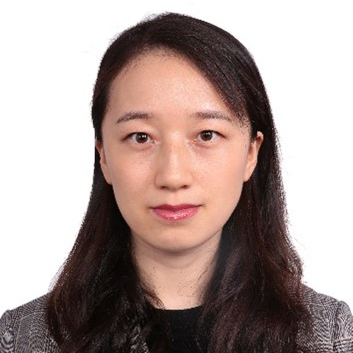
Qiong Wang
BSA Research and Enterprise Administrator
BSA
I’m the BSA Research and Enterprise Administrator. Before joining the BSA, I supported the Global Innovation Partners team with international collaborations at the Queen Mary University of London and was Assistant Director (Research) for the Center for Energy and Environmental Policy Research at the Beijing Institute of Technology for three years. Prior to that, I developed her passion for identifying solutions and strategies to energy problems and climate finance mechanisms whilst working at the Research Center for Climate and Energy Finance at the Central University of Finance and Economics and the Department of Industrial and Systems Engineering at the National University of Singapore. I’m interested in the cross-disciplinary approach that intertwines methodologies and expands architectural research to reach other fields with the aim of identifying real solutions and strategies.
Keywords: Climate Change, Climate Finance, Climate Policy, Energy Economics, Energy Policy
Email: qiong.wang@ucl.ac.uk

Dr Keri Wong
Assistant Professor in Psychology
UCL Department of Psychology & Human Development
Keri’s research focuses on understanding the developmental causes of social (mis)trust, mental health, and antisocial behaviour in children and adults in the community. She received her PhD in Psychology from the University of Cambridge and is the former Betty Behrens Research Fellow at Clare Hall Cambridge. Currently she leads on several studies looking at the impact of COVID-19 on Adult’s health & relationships (UCL-Penn Global Covid Study); UK-Japan family’s decision behind vaccinating young children (<18 years) (VaxPac Study); BAME young people’s mental health needs and support (CopeWell Study); Undergraduate’s access to career development and support (CUES Study); and Trainee teacher’s mental health needs and support (TeachWell Study). Keri co-directs the UCL Centre for Education in the Criminal Justice (ECJ), co-hosts UCL podcasts Research for the Real World and Academia et al., and was the former IOE Early Career Network (ECN) founder and co-chair. She loves oil painting and a game of tennis in her free time.
Email: keri.wong@ucl.ac.uk

Yaqian Zhang
PhD Student
Department of Geography
Yaqian Zhang is currently a PhD student in the department of geography. She received B.Art. and B.Eng degree in landscape design and architecture at Huazhong University of Science and Technology (China) in 2017. Yaqian has completed her MSc in International Planning at BSP, UCL. Afterwards, she started her PhD research on exploring social infrastructure, social capital and edible landscape in community gardens.
In China, rapid urbanisation has caused serious social, food and environmental problems. Community gardens, which is generally defined as a type of open space that is collaboratively cultivated with either vegetables or flowers by local residents, have sprung up in many Chinese cities in recent years. Community gardens have the potential to support in the building of social relationships, community cohesion. Also, edible landscapes have become one popular form of community gardens in recent year. In this context, my research aims to study the “relationship” and “connection” within community gardens by exploring social infrastructure, social capital and edible landscape, eventually providing guidelines for the creation of sustainable participatory community gardens in China’s urban context.
Keywords: community gardens, public space, social capital, edible landscape, social infrastructure
Email: yaqian.zhang.18@ucl.ac.uk

Zijing Zhang
PhD Candidate
The Bartlett School of Sustainable Construction
I am a current PhD student at The Bartlett School of Sustainable Construction at University College London (UCL), under the supervision of Dr. Ling Ma and Prof. Tim Broyd. I also work as a part-time research associate at Creative Wick Living Lab on a project titled “Community-led Housing for Creative Practitioners and Young People in East London”. My PhD research lies in the intersection of construction management and artificial intelligence (AI). More specifically, it focuses on the knowledge representation in the AEC industry. My PhD research aims to propose a new method to represent different types of rules with minimum knowledge loss. This research will contribute to the body of knowledge by providing a practical ACC solution to academics and practitioners. My research interests include digital construction, construction informatics, offsite construction and urban housing security. My PhD research focuses on automatic code compliance checking of healthcare facilities.
Keywords: automatic code compliance checking, building regulations, knowledge representation, healthcare facilities
Email: ucbqzzh@ucl.ac.uk

Jingmin Zhu
Research Fellow
Department of Epidemiology and Public Health
Jingmin is currently working on COVID-19 Health and Wellbeing National Core Study with the English Longitudinal Study of Ageing. Jingmin is interested in investigating health determinants in a broad concept. She has particular interests in health and socio-economic inequality. She has also conducted several studies on policy evaluation from the perspectives of economics and public health.
Keywords: Health determinants, Health behaviour, Mental health, Inequality, Policy evaluation
Email: jingmin.zhu@ucl.ac.uk